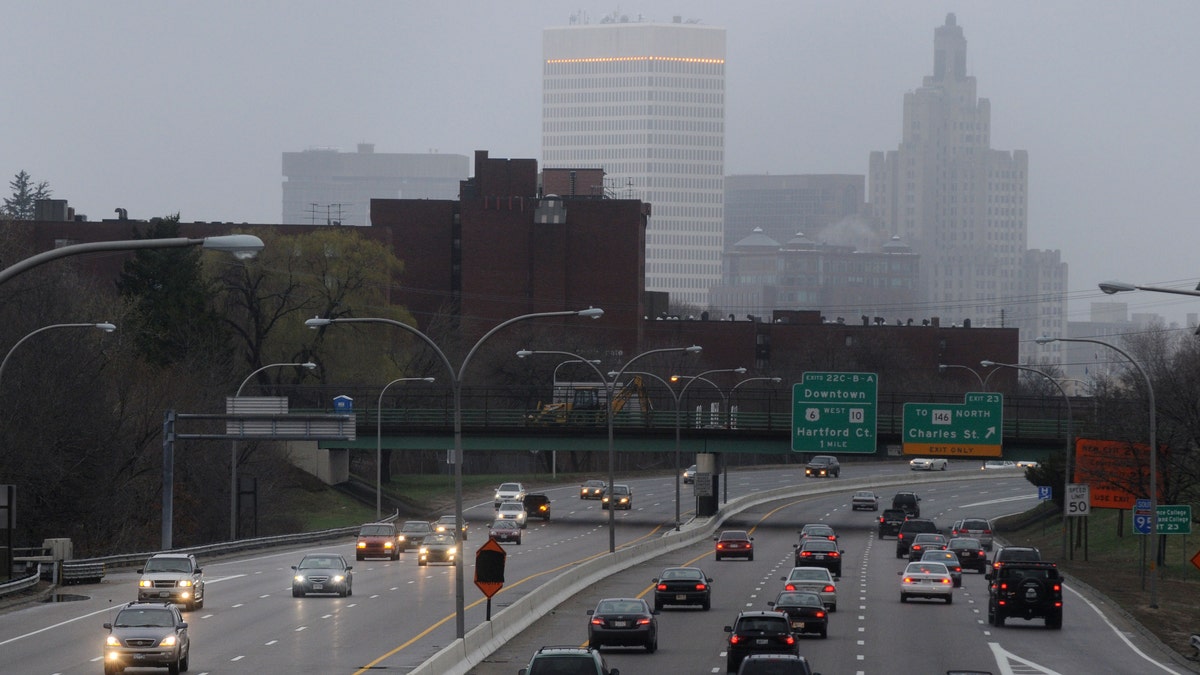
Traffic heading south along Interstate 95 into downtown Providence, Rhode Island. (Photo by Darren McCollester/Getty Images) (2010 Getty Images)
Owning a home has long been equated with achieving the American dream.
“I would definitely like to buy a house,” Sandra Estrada, a Colombian living and working in the growing Latino community in Providence, Rhode Island, told Fox News Latino. “But I don’t think I will ever be able to afford it.”
Like so many others, Estrada doesn’t see home ownership as a viable option.
“There’s no way I can have a mortgage for $500 a month,” said Estrada. A compilation of Rhode Island data shows Latinos in this state are overwhelming choosing to rent homes instead of purchasing their own.
The Hispanic population in the smallest state in America is spending more than the rest of the country on housing costs – but is using their money to rent instead of buying a house.
Complied by the Latino Policy Institute at Roger Williams University and the organization HousingWorks RI, the data shows nearly 1 in 3 of the state’s Latinos spend more than half of their monthly income on housing. This number is higher than the national Latino average, which hovers around 30 percent.
“The big surprise was the disparity,” Anna Cano, the director of the Latino Policy Institute, told Fox News Latino.
“We knew that Latinos certainly had challenges in the area of economic development but we didn’t realize how much of their income goes towards housing.”
Just 29 percent of Latinos in Rhode Island own homes. The number of Latinos who own homes nationally is much higher, at 46 percent.
"Areas of affordability are the main issues for Latinos,” added Jessica Cigna, a research and policy associate at HousingWorks RI.
While Rhode Island Latinos seems to be behind the rest of the country in home ownership, the reason why is unclear. Experts say it could be because the Latino population in Rhode Island is younger and less established.
Rhode Island State Sen. Juan M. Pichardo, whose campaign focused on affordable housing, said he is trying to figure out a way to address the issue.
“Latinos are the fastest growing ethnic group in Rhode Island and they represent the future of the state’s population and work force,” Pichardo said in a statement. “It’s critical, now more than ever, that we find ways to create more affordable homes for Hispanic families.”








































